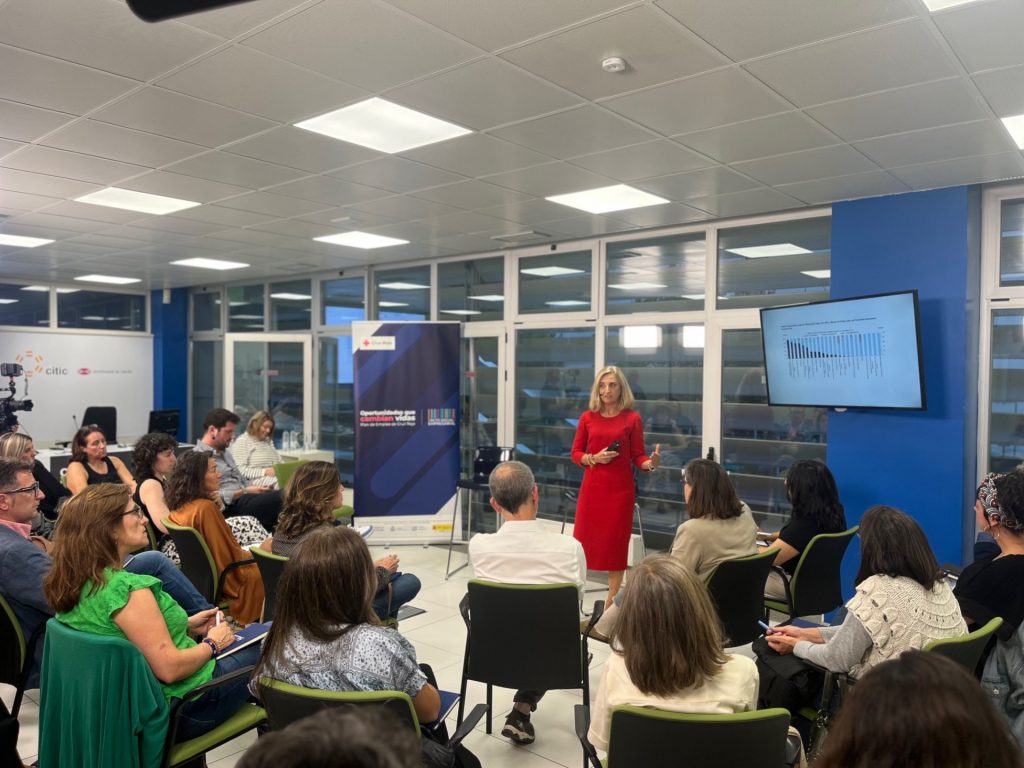
AI and the Future of Employment: Opportunities and Ethical Challenges at CITIC
CITIC, at the Universidade da Coruña hosted a talk and debate titled “AI, Ethics, and the Labor Market” on Monday, October 14, bringing together prominent experts in technology and business. The event featured CITIC researcher Amparo Alonso, who presented an analysis of how AI is reshaping the employment landscape, emphasizing the new skills that will be essential in the near future. She also highlighted the urgency of adapting educational systems to prepare workers for these new realities. In her presentation, Alonso addressed critical issues regarding the regulation of AI in the workplace, emphasizing the risks this technology poses to employees and vulnerable groups. She advocated for the establishment of clear guidelines to ensure responsible AI usage, particularly in high-risk sectors.
Among the data presented, the economic cost of inequality was highlighted, which could translate into an annual increase of €16 billion in GDP for the European economy. Improving this situation could lead to a GDP increase of up to €3.15 trillion by 2050. Additionally, it is anticipated that by 2025, 84.6% of total employment in the European Union will be held by individuals with medium to high technological training; in Spain, this figure is projected to reach 69.8%.
Furthermore, it was noted that ensuring the safety, transparency, traceability, non-discrimination, and environmental sustainability of AI systems used in the EU is a priority for the European Parliament. This directive is essential for promoting the ethical and responsible development of artificial intelligence across the continent.
Alonso also discussed how AI systems can negatively impact security and fundamental rights.
Subsequently, a debate took place between Alonso and Javier Martínez, CEO of Possible, exploring the opportunities and challenges that AI presents from a business perspective. Martínez emphasized the importance of fostering closer collaboration between the private sector and educational institutions to prepare the workforce of the future.
The event concluded with remarks from Mercedes Casanova, regional president of the Red Cross, who expressed gratitude to the speakers and reaffirmed the Red Cross’s commitment to inclusion and the protection of the most vulnerable populations in the face of technological changes.
This event is part of the second edition of CONECTAlab, an initiative by the Red Cross aimed at promoting innovation in employment through spaces for reflection and debate on the latest trends. The activity is supported by the European Social Fund Plus (ESF+), under the State Program for Social Inclusion, Child Guarantee, and the Fight Against Poverty.





